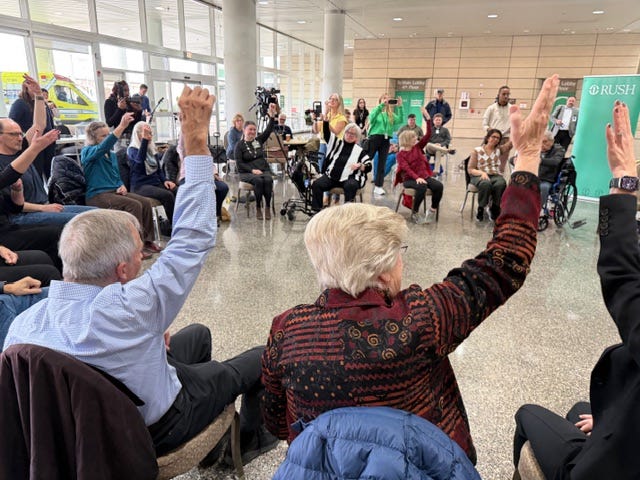
A special day at Rush University Medical Center as Parkinson's patients and their caregivers used movement and the music of Neil Diamond to bring joy and awareness to the community.
"Neil Diamond is one of my favorites, next to Joni Mitchell," smiled Michael Phillip, of Arlington Heights, who was diagnosed with Parkinson's in 2013 when he was 60 years old. "I had twitching in my fingers, back and forth, and I had a twitch in my eyelid but it was at least two years before I checked it out with a neurologist," he recalled.
Diamond shared his own diagnosis in 2018 and announced he would stop performing and touring. The musical "A Beautiful Noise' explores his own struggles, both physically and emotionally throughout his life as told through his music anthology.
Phillip says the singer's story can only help people like him.
"This helps because he's a public figure, it makes a difference," he said.
"He's (Diamond) a role model for us," said Phillip's wife Claudette. "It's an affirmation that life is complicated and not everything is the same for everybody, celebrity or not."
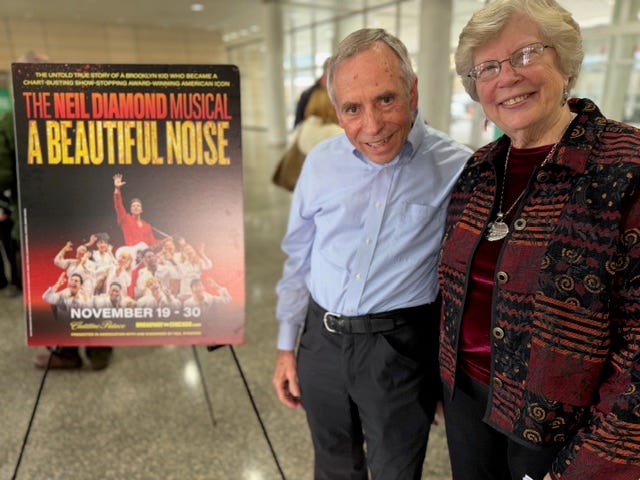
"Yes, people are living longer and so there is increased awareness, but we are also seeing an increase in incidents. The number of cases is more than it should be," said Jori Fleischer, Associate Professor, Neurological Sciences, Movement Disorder Specialist, Rush University Medical Center.
"There has been tremendous advocacy on behalf of so many public figures like Neil Diamond, like Michael J Fox, but also so many folks like the people we've seen here today, in their own way, are raising awareness about what it looks like to live-not to be diagnosed-but to live and thrive with Parkinson's." she said.
The movement circle at Rush was arranged through the hospital and Broadway In Chicago.
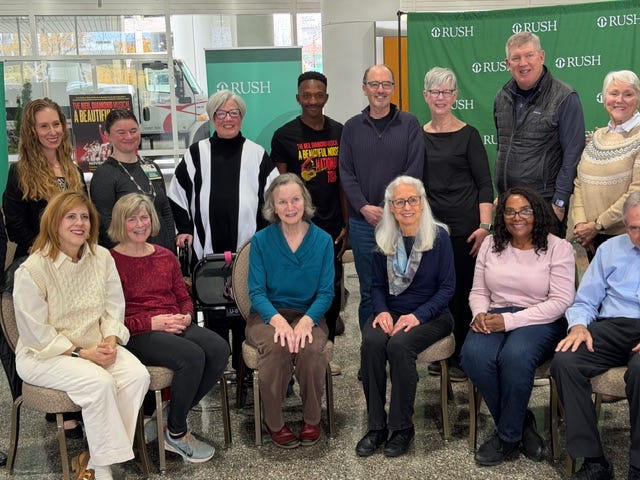
"Our folks participate in karate for Parkinson's, boxing for Parkinson's, dance for Parkinson's, all over the city. We knew we wanted to make this happen. We invited people who are big Neil Diamond fans." she smiled.
Fleischer says movement and music are essential and play key roles in slowing the disease.
"Movement or lack thereof affects mood, memory and thinking. It affects people's relationships with their loved ones. We know that exercise is one of the most powerful tools in our toolkit for helping people with Parkinson's not just feel better in the moment but exercise is the one thing that has been showed to slow down progression," she said.
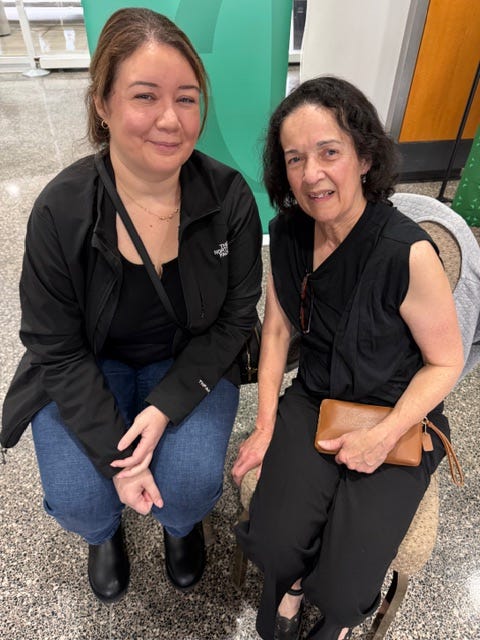
Sonia Vargas,65, was diagnosed with Parkinson's when she was 45. She says music and movement heal her when her body shuts down.
"Music relaxes me. If I freeze up in the middle of my kitchen, I take 1,2,3 dance steps and I forget about my body being frozen and it allows me to move around the house," said Vargas.
She says it's all about attitude and resilience as well.
"It's not the end of the world. It's the beginning-a different beginning. It's a battle within yourself but it's a battle we can fight. It's something I have accepted."
J'Kobe Wallace is the dance captain for the touring cast of "A Beautiful Noise," now playing at the Cadillac Palace Theater. He lead the movement class at Rush.
"This is my first time working with people with Parkinson's so that was the first thing I did, I wanted to be as well informed as I could be. When it comes to movement, and connecting musical ideas to movement, that fires and triggers things in your brain, so I'm so grateful to lead this class. I'm lucky to be the voice of our tour in this way," he smiled.
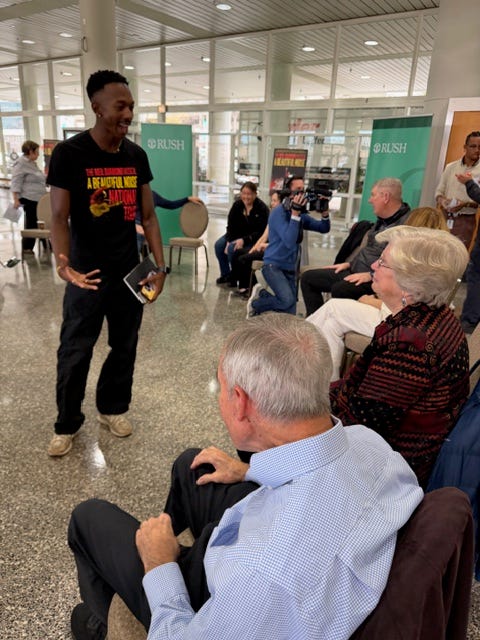
Approximately 1 million people in the U.S. have Parkinson's disease, with about 90,000 new diagnoses each year. Fleischer says the exact cause is unknown, but researchers continue to advance their knowledge about treatment and early diagnosis.
"There has been tremendous progress over the years. Everything from identifying new bio markers, ways to test and diagnose someone earlier, or track progression of the disease. Ten years ago, we only knew a handful of genes linked to Parkinson's, now we know many many more and there's work going on around the world to identify genetic mutations. All kinds of new medications are in the pipeline to slow down progression to treat everything from tremors to hallucinations, which impact someone's quality of life tremendously," she said.
Rush offers therapy and mental health support as well to address the psychological effects after a diagnosis.
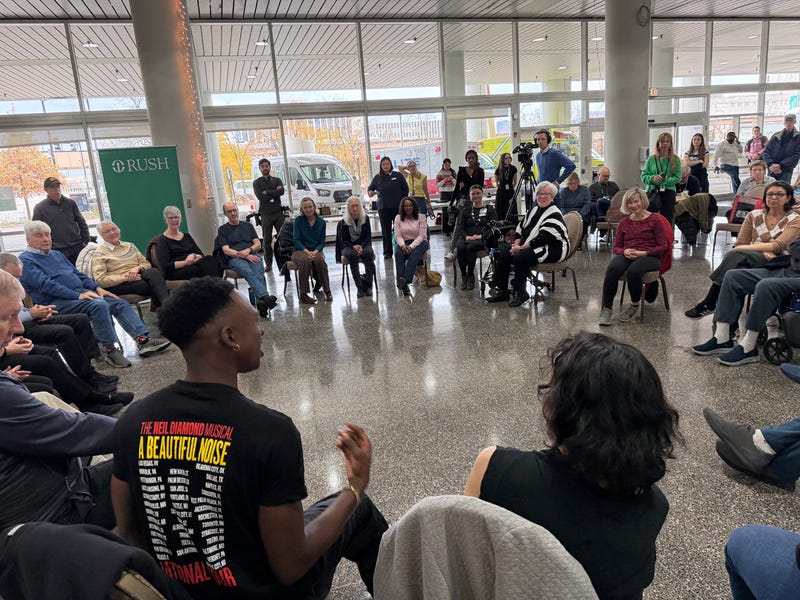
"We have support groups for this community. We remind them that this is not something that defines them and we help to get them through to that place." said Fleischer.
As part of the class, patients were given the opportunity to see the show. For Phillip and Vargas, dancing and moving makes all the difference.
"It was awesome, it was freeing," he smiled.
"I'm not going to let Parkinson's beat me, I'm going to beat Parkinson's, said Vargas.
Fleischer says awareness is key.
"For people with Parkinson's, keep raising your voices, keep moving, keep talking, share the diagnosis with people, we build awareness, we build toward future treatments and making this a thing of the past by speaking out about it now."
A Beautiful Noise will be there through November 30th. Tickets are available here.

